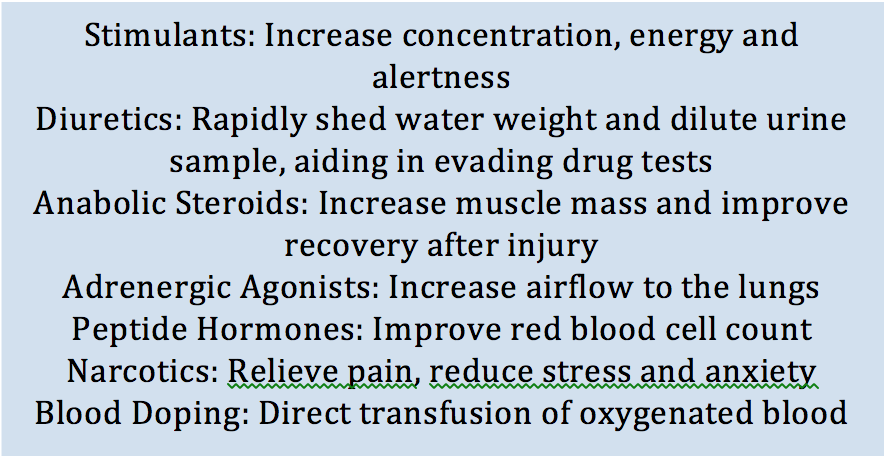Institutionalized doping in sports obliges cultural reform
March 8, 2018
A flood of grey and white dominated the floor as 169 athletes maneuvered through the opening ceremony of the 2018 PyeongChang Winter Olympics, following behind the Olympic flag instead of proudly displaying their native Russian flag. Watching the Russian athletes compete under the banner “OAR” (Olympic Athletes from Russia) brings back a plethora of memories of the doping scandals which rocked the international sports world during the 2014 Winter Olympics.
Due to systemic state-sponsored doping program in the 2014 Sochi Winter Olympics involving more than 1,000 Russian athletes across 30 sports, Russia was banned by International Olympic Committee (IOC) from competing at the 2018 Olympics; though 169 “clean athletes” from Russia were allowed to participate as individual athletes. Russia, still in official denial about its involvement, seems to have used its power and influence in the sporting world to strike a compromise with the IOC. In spite of the leniency, two Russian athletes failed the drug test at the PyeongChang Winter Olympics.
Doping is the administration of performance-enhancing drugs (PEDs) to gain an unfair advantage in sporting events. The World Anti Doping Agency (WADA) prohibits the use of about 300 types of PEDs which include anabolic steroids, stimulants, human growth hormone and diuretics.
Unfortunately, the Sochi cheating and coverup is but one of the many prevalent conspiracies in the sporting world scandals. In 2006, Floyd Landis, Lance Armstrong and several other bicyclists were found guilty of using PEDs. In 2007, the “Mitchell Report” highlighted the use of anabolic steroids in the baseball world.
Star athletes have always been idolized, and they hold a privileged place in society as a role model for young children and aspiring athletes. The unethical, unsportsmanlike and illegal code of conduct prevalent amongst the athletes tarnishes the image of the sport and the credibility of the athletes as role models. In a society where sports figures are seen as heroes, these scandals set a bad precedent where young children begin to view cheating as an acceptable way to win.
With institutionalized support from coaches to win at all costs and the attraction of high prize money, the use of PEDs has not generated enough outrage. Many athletes caught cheating, such as tennis player Maria Sharapova and sprinter Justin Gatlin, return to their sport with their old fame and glory after serving minor punishments. Infuriatingly, seven Russian medals from the 2014 Sochi Olympics were reinstated after doping ban was overturned on the athletes.
We need to level the playing field for the athletes who have worked hard all their life without the supplement of PEDs. It is time that we hold cheating athletes more responsible for their actions. It is time that we stop turning a blind eye to doping in the field of sports, since cheating erodes the trust fans place in athletes. A lifetime ban for guilty athletes is worth considering as the first step in restoring integrity in sports. Honesty in sports would be a welcome and refreshing change.
This piece was originally published in the pages of The Winged Post on March 6, 2018.


















![“[Building nerf blasters] became this outlet of creativity for me that hasn't been matched by anything else. The process [of] making a build complete to your desire is such a painstakingly difficult process, but I've had to learn from [the skills needed from] soldering to proper painting. There's so many different options for everything, if you think about it, it exists. The best part is [that] if it doesn't exist, you can build it yourself," Ishaan Parate said.](https://harkeraquila.com/wp-content/uploads/2022/08/DSC_8149-900x604.jpg)




![“When I came into high school, I was ready to be a follower. But DECA was a game changer for me. It helped me overcome my fear of public speaking, and it's played such a major role in who I've become today. To be able to successfully lead a chapter of 150 students, an officer team and be one of the upperclassmen I once really admired is something I'm [really] proud of,” Anvitha Tummala ('21) said.](https://harkeraquila.com/wp-content/uploads/2021/07/Screen-Shot-2021-07-25-at-9.50.05-AM-900x594.png)







![“I think getting up in the morning and having a sense of purpose [is exciting]. I think without a certain amount of drive, life is kind of obsolete and mundane, and I think having that every single day is what makes each day unique and kind of makes life exciting,” Neymika Jain (12) said.](https://harkeraquila.com/wp-content/uploads/2017/06/Screen-Shot-2017-06-03-at-4.54.16-PM.png)








![“My slogan is ‘slow feet, don’t eat, and I’m hungry.’ You need to run fast to get where you are–you aren't going to get those championships if you aren't fast,” Angel Cervantes (12) said. “I want to do well in school on my tests and in track and win championships for my team. I live by that, [and] I can do that anywhere: in the classroom or on the field.”](https://harkeraquila.com/wp-content/uploads/2018/06/DSC5146-900x601.jpg)
![“[Volleyball has] taught me how to fall correctly, and another thing it taught is that you don’t have to be the best at something to be good at it. If you just hit the ball in a smart way, then it still scores points and you’re good at it. You could be a background player and still make a much bigger impact on the team than you would think,” Anya Gert (’20) said.](https://harkeraquila.com/wp-content/uploads/2020/06/AnnaGert_JinTuan_HoHPhotoEdited-600x900.jpeg)

![“I'm not nearly there yet, but [my confidence has] definitely been getting better since I was pretty shy and timid coming into Harker my freshman year. I know that there's a lot of people that are really confident in what they do, and I really admire them. Everyone's so driven and that has really pushed me to kind of try to find my own place in high school and be more confident,” Alyssa Huang (’20) said.](https://harkeraquila.com/wp-content/uploads/2020/06/AlyssaHuang_EmilyChen_HoHPhoto-900x749.jpeg)











